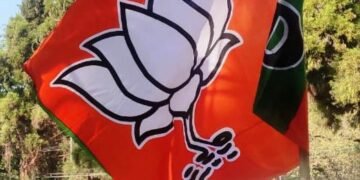The Mughals ruled much of the Indian sub-continent between the 16th and 19th centuries. Their legacy is visible today mainly in a number of monuments recognised as UNESCO World Heritage Sites. The decision by NCERT for removal from school textbooks of chapters covering the Mughal period of Indian history spanning three centuries has raised a storm of protests from academics. The director of the NCERT, Dinesh Kumar Saklani, has stated that the chapters were removed as part of “rationalisation aimed at reducing the burden on schoolchildren following the COVID-19 pandemic.” He claimed that the rationalisation was vetted by experts and denied that there was any political agenda behind the move.
Apart from academics, leaders of opposition parties have also denounced the changes to the textbooks. Sitaram Yechury, general secretary of the Communist Party of India, said the changes made to class textbooks were regrettable because of India’s diversity. “The lands of India have always been the churning crucible of civilisational advances through cultural confluences,” Yechury says. Kerala Chief Minister Pinarayi Vijayan, tweeted: “They resort to rewriting history and masking it with lies. So, we must strongly protest the decision of the BJP government to delete certain sections from NCERT textbooks. Let the truth prevail.”
Academic curriculum shape the way teaching, learning and assessment processes are organised by addressing questions such as what, why, when and how students should learn. Therefore, a quality curriculum must pave the way to the effective implementation of inclusive and equitable quality education. The Mughal period presents a well-researched part of Indian history because of the rich documentation they left behind. Removing an entire chapter dealing with such an important period of history from class XII textbooks would certainly affect students’ career choices – they will see a mismatch between visible legacy and the curriculum.
Much of India’s built heritage, language, arts, agriculture and land tenure systems are a legacy of the Mughal period. It is important to study how India was also progressing in the scientific fields during that period. The Mughal period also saw a flowering of the sciences, especially astronomy, mathematics, medicine, architecture and engineering that had an impact long after the dynasty ended in 1857. Akbar’s reign (1556-1605), for example, saw the establishment of medical schools and dispensaries, while his successor, Jehangir, patronised the study of mathematics and astronomy.
Those advocating the NCERT decision opined that the Mughal period was getting “disproportionate description and allotment of space” in history textbooks and this needed to be rectified. However, textbooks were designed to be inclusive and provide a sense of the rich diversity of the human past both within the subcontinent as well as the wider world. As such, removing chapters/sections of chapters is highly problematic not only in terms of depriving learners of valuable content but also in terms of the pedagogical values required to equip them to meet present and future challenges.


























